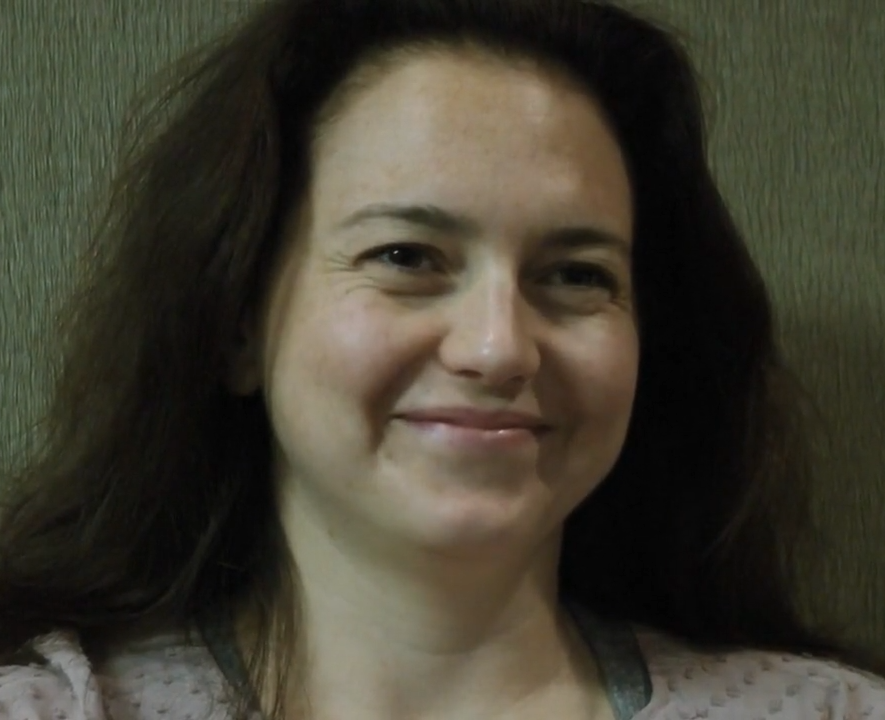Andrea

Age at interview: 37
Andrea is a 37-year-old woman who lives with her husband and daughter who was 22 months at the time of interview. She was diagnosed with an anxiety disorder in her teens and had experienced several bouts of depression over the years prior to becoming pregnant. Andrea consulted a perinatal psychiatrist to ensure that the medication she was taking to manage her own health would not be harmful to the baby.
About 7 months into the pregnancy Andrea developed insomnia, increasing anxiety and low mood. She began to worry obsessively and had disturbing thoughts about harming herself. Unable to cope with her job any longer she went on leave. She also asked the physician managing her care to induce her delivery early. Her physician agreed to induce her once she reached her due date. On the advice of her psychiatrist, Andrea arranged for a night nurse so that sleep deprivation did not become an additional factor impacting her mental health. With psychiatric support Andrea weathered the next few months. However, she did not feel well and was disconnected from her daughter. Despite having a very supportive husband and family, the social pressure and judgment Andrea felt from other new mothers left her feeling guilty and bad about herself.
About five months postpartum, Andrea’s mental health declined and her psychiatrist recommended she be hospitalized to establish a new treatment plan under medical supervision. She found herself on a general psychiatric ward, which included patients with severe psychotic disorders, being treated by staff who had no expertise in perinatal mental health. It was an extremely negative experience and Andrea was released, after two weeks, into a structured day program which she also found to be unhelpful and inappropriate. Over the next few months, she continued to struggle with severe anxiety and depression until she was again hospitalized after an attempted suicide. A new psychiatrist who was much more compassionate and understanding suggested electroshock therapy which Andrea agreed to. She was subsequently released from hospital. Sometime later, Andrea’s mood lifted suddenly although it is unclear whether it was the ECT or medication she had taken that may have prompted the change. She was then referred on to another psychiatrist who continues to manage her care. New medication for mood disorder has proved to be effective and by the time her daughter was approaching her first birthday, Andrea was feeling well again. She gradually began to take on more of her daughter’s care, gaining confidence in her abilities as a mother over time. Andrea and her daughter are doing well and enjoy a strong bond.
Informed by her own experience and the lack of dedicated mental health services for women experiencing perinatal mood disorder, Andrea has become an advocate for more open discussion of the subject and more appropriate services.
More content
- Advice for Policymakers – AndreaAndrea describes the need for a safe space for moms to get mental health care and support.
- Coping with Perinatal Mental Health – AndreaAndrea started her own peer support group.
- Medication and Treatment Approaches – AndreaAndrea still has nightmares about her inpatient psychiatry admission.
- Seeking and Finding Reliable Information – AndreaAndrea created a Facebook group for maternal mental health awareness that meets periodically to support each other.
- Gaps in Health Care System – AndreaAndrea is angry that she had no access to a perinatal mental health specialist.
- Communicating with Health Care Providers – AndreaAndrea found a new provider who had more time for her care.
- Work, Finances and Mental Health – AndreaOnce on leave, Andrea spent the days trembling in fear, anxious about what to do during the day.
- Relationships – AndreaHearing Andrea's thoughts of self-harm was deeply traumatic for her family members.
- Stigma and Feeling Judged – AndreaFor Andrea, feelings of judgement regarding medication use for mental health issues is not uncommon.
- Bonding – AndreaWhile others helped care for the newborn, Andrea had to figure out how to do it on her own.